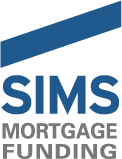HUD SECTION 232/241(a) – Lean Processing
Supplemental loans for the expansion or renovation of existing skilled nursing, assisted living or memory care facilities with HUD-insured loans.
Program Features
- Used when it is not feasible to refinance a project’s HUD-insured loan because the current loan has a favorable interest rate or because prepayment is still subject to a lock-out or is prohibitively expensive.
- Combines construction and permanent financing into a single transaction approved at the same time.
- Maximum insurable loan is generally the lesser of: a) 90% of the cost of the improvements; b) 90% of the increase in value after the completion of the improvements; c) an amount supported by a 1.45 debt service coverage (DSC) ratio; or, d) an amount based on total indebtedness.
- Loan is pre-payable, assumable and non-recourse.
- The supplemental loan is typically cross defaulted with the existing HUD-insured loan and shares the same collateral.
fees
0.30% | Application Fee to HUD |
1.00% | Up Front Mortgage Insurance Premium to HUD (Reduced to .25% for Green Energy Efficient Projects) |
0.50% | Inspection Fee |
2.00% | Maximum Financing (Origination) Fee |
1.50% | Maximum Placement Fee |
2.00% | Costs of Issuance for Tax-Exempt Bond Transactions |
An annual 0.55% Mortgage Insurance Premium (.45% for Tax Credit Projects and .25% for Green Projects) is paid to HUD as part of the monthly mortgage payment.
Escrows
- Replacement reserve escrow for on-going replacement of depreciable items is required for the term of the loan. The amount of the annual deposit will be revised after 10 years based on a capital needs assessment.
- Working capital deposits or operating deficit escrows are generally not required unless the project involves the addition of new beds.
